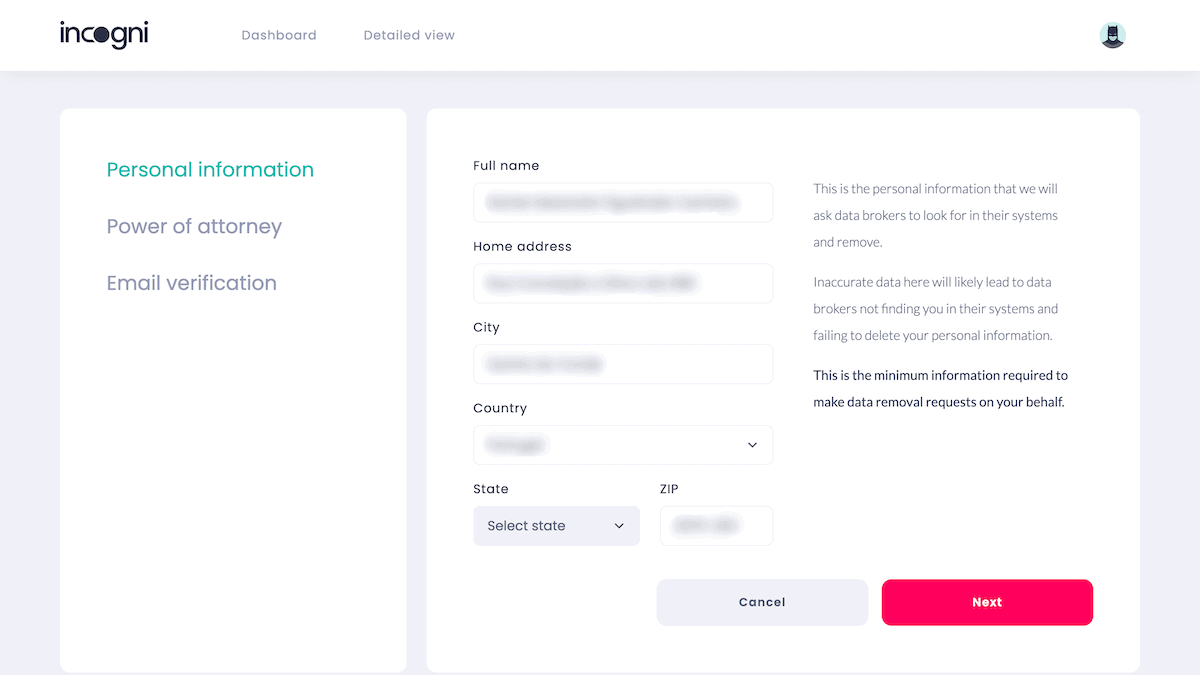Use social media with caution
In a fast-paced world where it’s difficult to maintain connections with family and friends, social media provides a great way to keep in touch with loved ones. However, people tend to overshare on these websites. Therefore, just by resisting the urge to post every minute, you’re already on your way to protecting your privacy. Additionally, remember to set up your account privacy settings to only allow friends to see your posts, and don’t discuss sensitive information like medical history online, even if it’s via private chats.
Manage online accounts carefully
It may seem unnecessary, but deleting unused accounts is crucial. Many people fell into the trap of keeping their Myspace account open after they stopped using it. As the platform wasn’t updated anymore, it became less and less secure, and many people’s data was leaked years later. However, this rule isn’t exclusive to social media. Let’s say you give up online dating: it’s not enough to just delete the app – you need to remove the account entirely. This is because if it lies dormant for an extended period, and someone may access it without you realizing it. If you suspect that your data has already been compromised, use an identity theft protection service, as they can check the dark web for stolen information and guide you through the data recovery process if needed.

Remove personal data from data brokers
By clicking on ‘Accept all cookies’ without thinking, there’s a high possibility that you’ve just agreed to share your browsing data. This information will likely be forwarded to data brokers, who will then create a profile about you and sell this information to other companies. Fortunately, the law is on your side in the sense data brokers are required to delete your data when you ask for it. However, this is easier said and done, as there are various data brokers out there. Not only is it challenging to find all the companies that may have your information, but you also need to contact the companies yourself one by one. Fortunately, services like Incogni are a great help. They work as your data removal agent, contacting all the companies that may have your information and ensuring they remove your information.
Switch to a private search engine
Using popular search engines is convenient as they’re lightning-fast and yield zillions of results. It takes no time to find what you’re looking for, as these search engines discreetly store your browsing history and can quickly present you with information you’re likely to need. Even more worrying is that these companies also track your online activity and collect data on your browsing habits. This is how they’re able to show everyone personalized ads.
Luckily, private search engines like DuckDuckGo or Startpage offer a less-intrusive alternative solution. They typically yield just as relevant hits as Google, but they work with different algorithms that don’t collect your data. Granted, a private search engine still has to cover its costs, so you may still encounter some ads, but they won’t be specific or tailored to your internet habits.
Surf the web with a secure browser
Google Chrome and Microsoft Edge are some of the most widely used browsers. Despite this, they provide little privacy, even when using incognito mode. Fortunately, there are browser extensions you can install to make them more private, and there are also secure browsers that offer these as built-in features. In addition to not tracking or storing your data, some of these solutions check mailboxes for phishing attempts and scan downloads for malware.
Encrypt connections with a VPN
Although it’s sometimes necessary to do so, be wary of using public Wi-Fi. These are internet sources where all computers are connected to the same network, making a hacker’s job to breach into your device child’s play since they can invade invisibly. Moreover, public Wi-Fi network administrators are able to track online activity and pinpoint your exact location. One way of protecting yourself is to use a VPN when connecting to public Wi-Fi. This software encrypts your connection end to end, hiding your activities entirely through a virtual wall of code.

To maximize protection, never use a free VPN, as they’re not only slow and lacking in servers, but their developers typically sell users’ data. Even with a paid solution, DNS leaks may occasionally happen, but it’s easy to check this with websites like IPLeak. Finally, it’s also worth switching on a VPN at home, as internet service providers collect huge amounts of data, and a VPN ensures they don’t see your activities.
Taking one of these steps is better than none, but they work best when mixed together. For example, using a secure browser with a VPN and a private search engine at the same time will ensure a great deal of privacy. On top of this, always be mindful of what you share online, as no software protects users when they expose themselves willingly.

 Richárd Z.
Richárd Z.
 Mary P.
Mary P.








User feedback